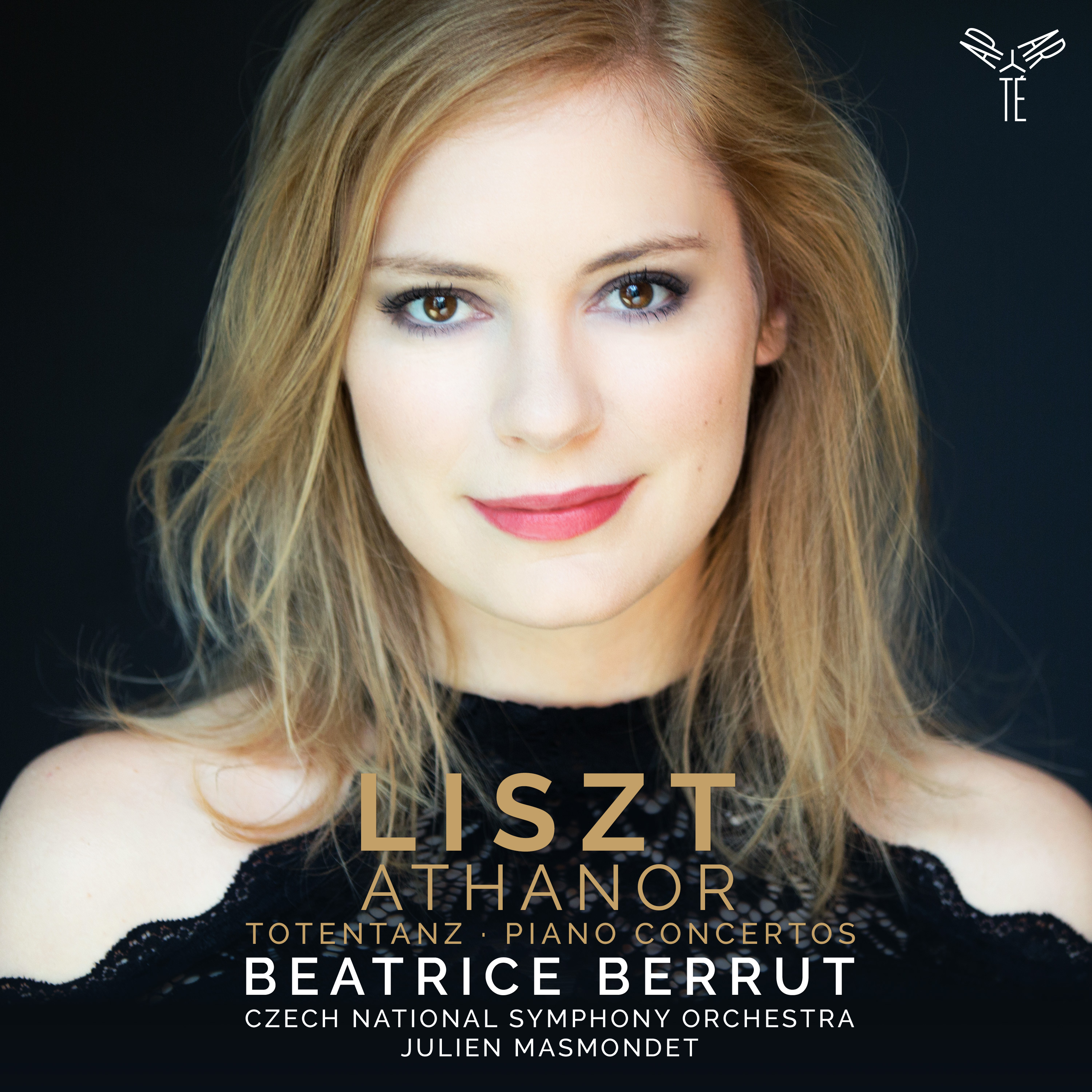Beatrice Berrut, Czech National Symphony Orchestra, Julien Masmondet
AP180 - 1CD - 70' - Apr 27, 2018
Athanor. A mysterious name to designate, in alchemy, the long-combustion furnace that produces the philosopher’s stone. This matrix, which symbolises the quest of one who seeks to the Absolute, is a metaphor of Liszt’s approach.
With the patience of the alchemist who pursues the perfection of the material, the virtuoso composer and pianist has long matured the genesis of his two Piano Concertos and of the Totentanz: in fact, more than 20 years separate the first sketches of their publication.
These three major works are each crossed by a powerfull and captivating leading theme, and driven by a logic of transformation: the Totentanz uses the theme and variations form while the concertos are unifyed by a unique theme that nourishes the whole musical flow through its metamorphoses.
Pianist Beatrice Berrut, who was already venturing on the Lisztian paths in her previous record, testifies here to the infinite invention of the composer: she performs the first Concerto with its last variants noted by Liszt himself on the copy of his pupil Hans von Bülow.
Vibrant heart of the disc, the symphonic poem Don Quixote transforms the instruments into characters who play the epic adventures of Cervantes’ hero. Thus, Don Quixote, played by the cello, talks with Sancho Panza (the viola) or Dulcinea (the violin) in a luxuriant orchestral fresco, tender and sensual, where Strauss’ genius for melody unfolds with a touch of humour.
His exquisite expressiveness shines through the most intimate pieces that complete this program. Ophélie Gaillard’s warm lyricism agrees with the piano in the Romance and the Sonata in F major, or with the voice in the smooth accents of Morgen. As an ideal companion, the cellist's enchanting bow leads to an irresistible music.
FRANZ LISZT
1. Totentanz. Paraphrase sur le Dies irae pour piano et orchestre S.126
Concerto pour piano no 1 en mi bémol majeur S.124
2. Allegro maestoso
3. Quasi adagio
4. Allegretto vivace – Allegro animato
5. Allegro marziale animato
Concerto pour piano no 2 en la majeur S.125
6. Adagio sostenuto assai – Allegro agitato assai – Un poco più mosso – Tempo del andante
7. Allegro moderato
8. Allegro deciso – Marziale un poco meno allegro – Un poco meno mosso
9. Allegro animato



